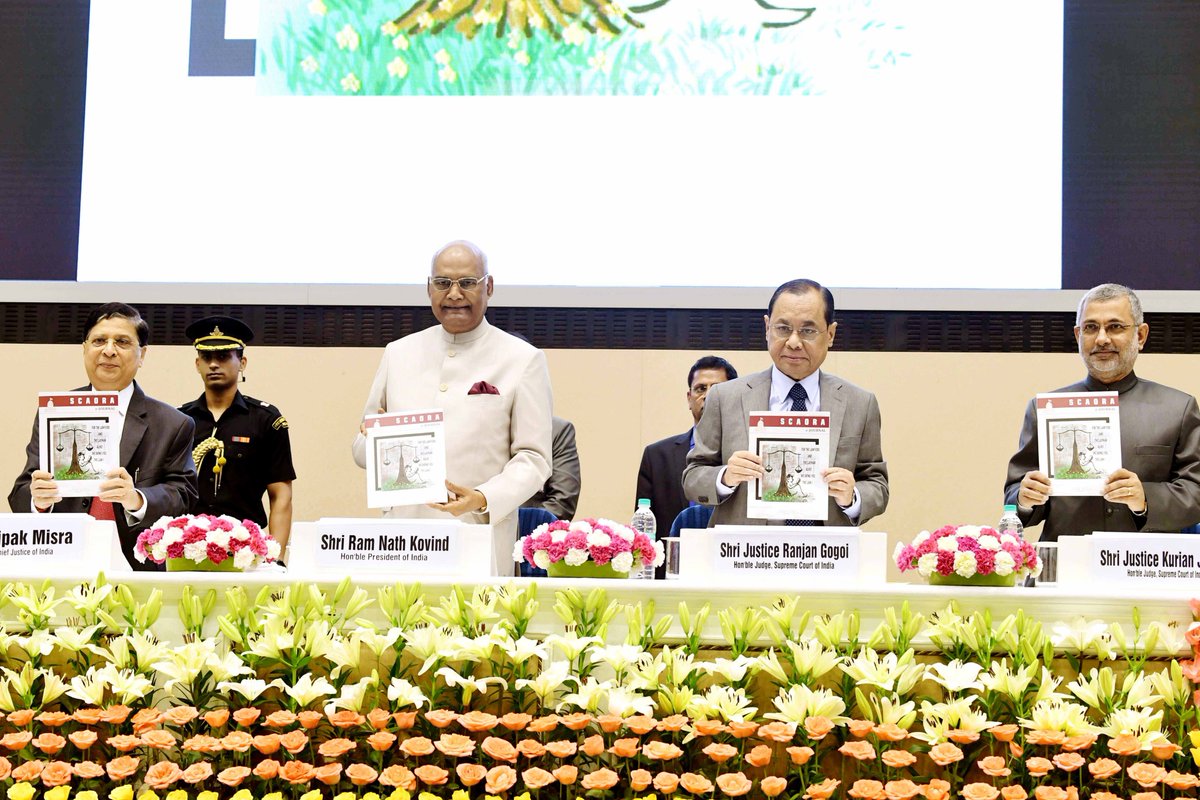Last Updated on September 2, 2018 12:10 am by INDIAN AWAAZ

Our Correspondent / NEW DELHI
President Ram Nath Kovind on Saturday said that technology could be a great enabler for speedy justice in India. Addressing a National Conference organised by the Supreme Court Advocates on Record Association here, Mr Kovind said, a start was made in 2016 with the opening of India’s first e-court in the High Court of Hyderabad and since then, the idea of e-courts has spread elsewhere.
Expressing concern over backlog of case in courts, The President said, Indian legal system is marked by long delays and there is a backlog of 3.3 crore cases in various courts of the country.
He said, 2.84 crore cases are pending in the subordinate courts, 43 lakh are in the High Courts and about 58 thousand in the Supreme Court.
Mr Kovind said, there are many reasons for such delays like there are infrastructure gaps and considerable vacancies, particularly in subordinate courts and there is a culture of seeking adjournments as a norm rather than an exception. He said, Judiciary is making efforts to curb this practice.
The President said, India’s judiciary is respected across the world as an upholder of justice for the defenceless. He said, in the past, it has been observed that governments and government agencies themselves were party to many cases of litigation. He commended Government of India for making a sincere effort to reduce this number.
Mr Kovind said, innovations such as evening courts and family courts, and the concerted effort made in delivery of speedy, fast-track judgements in cases of sexual crimes against women, are also noteworthy.
He said, there has been a conscious rationalisation of tribunals and 36 identified tribunals have been merged to form 18 tribunals. He said, this prevents overlapping of jurisdictions and provides greater clarity in ensuring early solutions and justice to aggrieved parties.
The President said, several remedial measures have been taken and Government has enhanced threshold for filing appeals in tax disputes in tribunals and courts. He said, in Supreme Court, the threshold has gone up from 25 lakh to 1 crore rupees.
He said, Government has also decided to withdraw many pending appeals. Mr Kovind said, on the pathway of the Government’s Digital India initiative, the Legal Information Management and Briefing System, LIMBS has been introduced as an online mechanism to monitor and streamline court cases and to reduce the government’s own litigation.
He said, LIMBS attempts to bring all stakeholders from Ministries to advocates to claimants and others on the same platform. He said, the system will check delays and financial costs and so far 2.6 lakh court cases have been placed on this platform.
Addressing the conference, Chief Justice of India, Dipak Mishra said, technology can enhance the quality of work especially in the criminal cases. He said, good infrastructure is needed for better litigant consultation.
Justice Misra said, young lawyers are technically sound and they should be allowed to argue in courts. He said, old should make way for young lawyers in the courts. Advising the young lawyers, Justice Misra said, they should try to be a mediator before entering into any adversarial litigation.
In his address Attorney General of India, K K Venugopal appealed to the lawyers, not to go on strikes. He said, the lawyers are in an honourable profession and strikes are for trade unions not for legal professionals.
#PresidentKovind inaugurated National Conference being organised by the Supreme Court Advocates on Record Association at New Delhi; expressed confidence that the entire legal fraternity will resolve not to seek adjournments except in absolutely unavoidable circumstances pic.twitter.com/tR0XQDMIEj
— President of India (@rashtrapatibhvn) September 1, 2018
